‘Leaving Neverland’ director talks Michael Jackson sexual abuse accusations and potential fallout
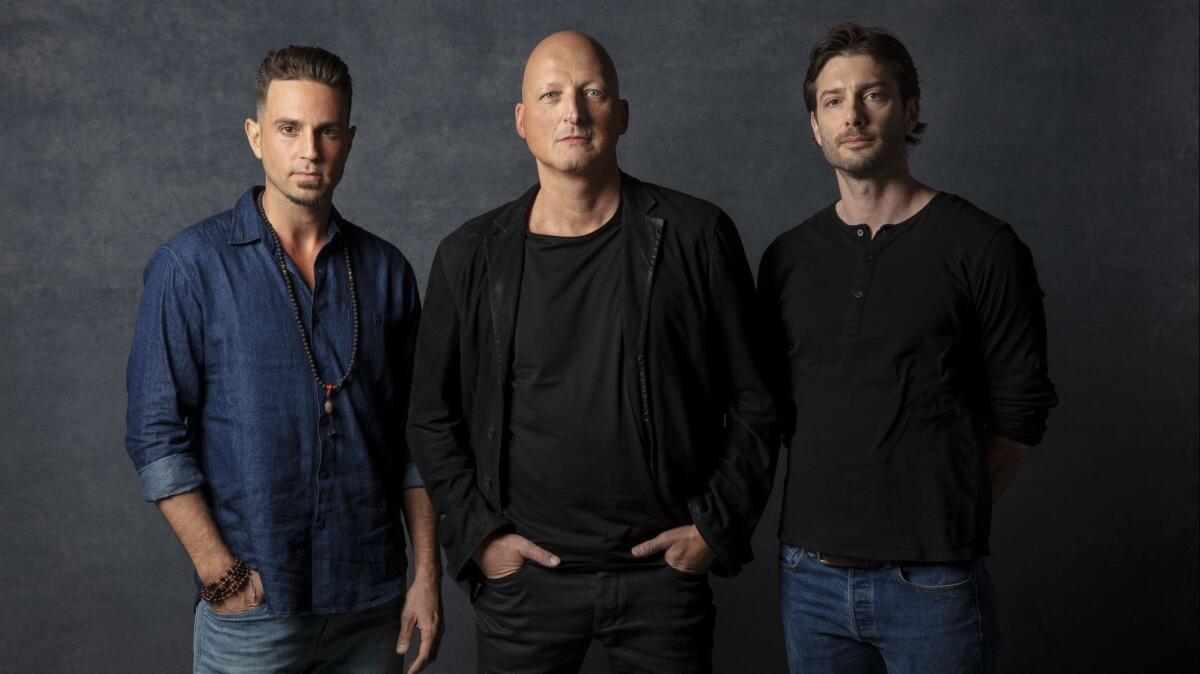
Reporting from Park City, Utah — A few years ago, when Dan Reed first learned that two men had filed child sexual abuse lawsuits against Michael Jackson, he was stunned. Given the gravity of the allegations, he didn’t understand why more people weren’t talking about Wade Robson’s and James Safechuck’s stories.
It was 2016, and Reed — a U.K. native — had been looking for his next nonfiction project. He was looking to do something big and investigative, an iconic American story that had the power to engage audiences on a global scale. So during lunch with an executive at England’s Channel 4, he suggested Michael Jackson: Was he or wasn’t he guilty of sexual abuse?
At the time, Reed wasn’t aware that Robson and Safechuck had recently sued Jackson’s two business entities, seeking damages for what they alleged were years of molestation at the hands of the musician. The documentarian was aware of the two public trials against Jackson — the first in 1993 and the second in 2005 — in which he was charged but never convicted of child sexual abuse. But until a researcher he’d hired began looking into Jackson’s legal history, Reed had no idea who Robson and Safechuck were.
Upon learning of their complaints, Reed immediately reached out to the legal teams for the two men and expressed his interest in interviewing them for a documentary. Though the filmmaker felt “it was a real long shot,” the accusers agreed to participate. In February 2017, Reed flew to Hawaii to interview Robson, then talked to Safechuck in Ventura County.
On Friday, Reed’s film, which will debut on Channel 4 and HBO this spring, was unveiled to a packed house at the Sundance Film Festival. In the 236-minute project, Robson, 36, and Safechuck, 40, reveal how they came to become close to Jackson as boys and subsequently suffered years of abuse that they hid from their families until they were grown men.
An hour after the film came to its emotional conclusion Friday afternoon, Reed spoke to The Times about how the two men are coping with the release, his hopes for how the production will help abuse survivors and how Jackson fans should respond to the new allegations.
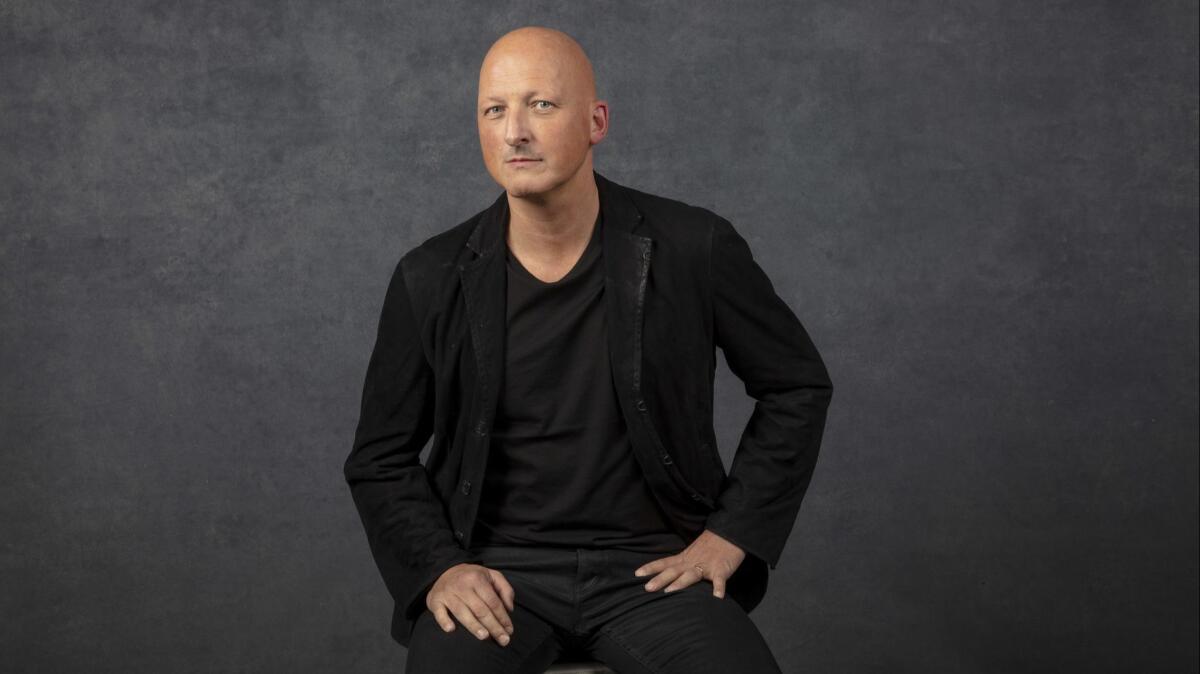
How did Robson and Safechuck react after the screening today?
They’d seen it about a month ago, but at the intermission, they were both overwhelmed and very, very emotional. The film’s crossed that line into the public sphere now, and I think that was an incredibly cathartic moment for Wade and James. They feel very good about the film; they love the film. But it shook them. It’s disturbing as well as life-affirming and liberating.
There’s a tremendous energy for them in getting this out there. We were talking about it, what an incredible moment it is. This thing happened to them, and there’s nothing they can do about it and it [messed] up their lives for a good while. But now it has a purpose. Their experience can be transformed into something that can help other people and give permission to victims of child sexual abuse to speak out.
Did either of the men lay out ground rules before you interviewed them?
It was made clear to the lawyer from the outset that “you have no editorial control.” I just said, “Speak in as plain terms as you can.” I didn’t interrupt very much. I asked a few questions, and [Robson] just went.
You interviewed Robson first, and you’d never spoken with him before meeting him in Hawaii. What was that like?
I flew to Hawaii and met Wade for lunch, and we immediately had a rapport. For three days, we just talked. When I started interviewing him, I couldn’t take for granted that he was telling the truth. I wasn’t skeptical, and sort of gave him the benefit of the doubt, but his story had to make sense, because there was no way I was going to risk my reputation on something that was flawed or not quite true. We agreed that the sexual abuse had to be described exactly as it happened. We had to go graphic, because there’s no point making a film like this and just saying, “Well, then the bedroom door closes,” and we skip ahead.
There were areas where I questioned him more because I needed to make sure that his account was entirely consistent. That’s the big thing — if people are not telling you the truth, then they don’t have a mental picture of what it is they’re actually talking about, because they’re lying. You can feel there isn’t a mental object they’re describing. I straight away got a sense from Wade that he was telling the story effortlessly and it was very fluid. If I asked him questions, his mind was referencing a real thing and not a made-up thing. His account was extremely credible. Certainly by the end of the third day, I had no doubt he was telling the truth.
And you got the same sense from Safechuck?
Equally with James. James was more tentative, because he has not spoken to the press. Wade was in show business, and he’d been interviewed loads of times before. James is so much more raw. You could feel him processing that experience as he was speaking and trying to find words to express what had happened to him. His face is much more — I don’t want to say expressive — but you can read the turmoil on his face.
Although Wade’s very emotional, the conflict isn’t there because I think he’s had a lot more therapy and processed these things. I thought that as contrasting witnesses, they worked very well. I found James so authentic. His account drifted around a lot more, not in ways I found inconsistent, but he was suddenly talking about this enormous part of his life he’d never discussed with anyone. His memories were a lot more attached to feelings, and they weren’t as crisply illuminated as Wade’s — they were more impressionistic. He remembered details of the abuse and the feelings he’d had, but he couldn’t necessarily remember that it was exactly two days between Berlin and Paris.
Both Robson and Safechuck previously testified in court that Jackson never abused them, and now they say they lied because they have since come to terms with what was done to them. Were you skeptical of their stories going into this?
When Wade told me that he loved Michael, then everything suddenly crystallized and made sense. This is difficult to say, but he had a fulfilling sexual and emotional relationship at the age of 7 with a 30-year-old man who happened to be the King of Pop. And because he enjoyed it, he loved Michael, and the sex was pleasant. I’m sorry, that’s just the reality.
Most people imagine the kid kind of being forced — that’s not what happened, and Wade makes that very, very clear. If you’re really going to understand what oftentimes child sexual abuse is like, you have to understand that the abuser creates an authentic relationship that if the person was aged 18 or older would be completely normal. The problem is that the child is 7, and a 7-year-old can’t make those decisions.
We have to face the fact that child sexual abuse isn’t a guy grabbing you in the dark and you scream and he runs off and you tell your mom. If this film can make certain ideas about sexual abuse current — if that can become part of the culture — then we’ve done a good job, because then people will be able to recognize symptoms and understand why Mark or Joe or whoever started drinking heavily in his early 30s and it turned out he had been abused by his schoolteacher.
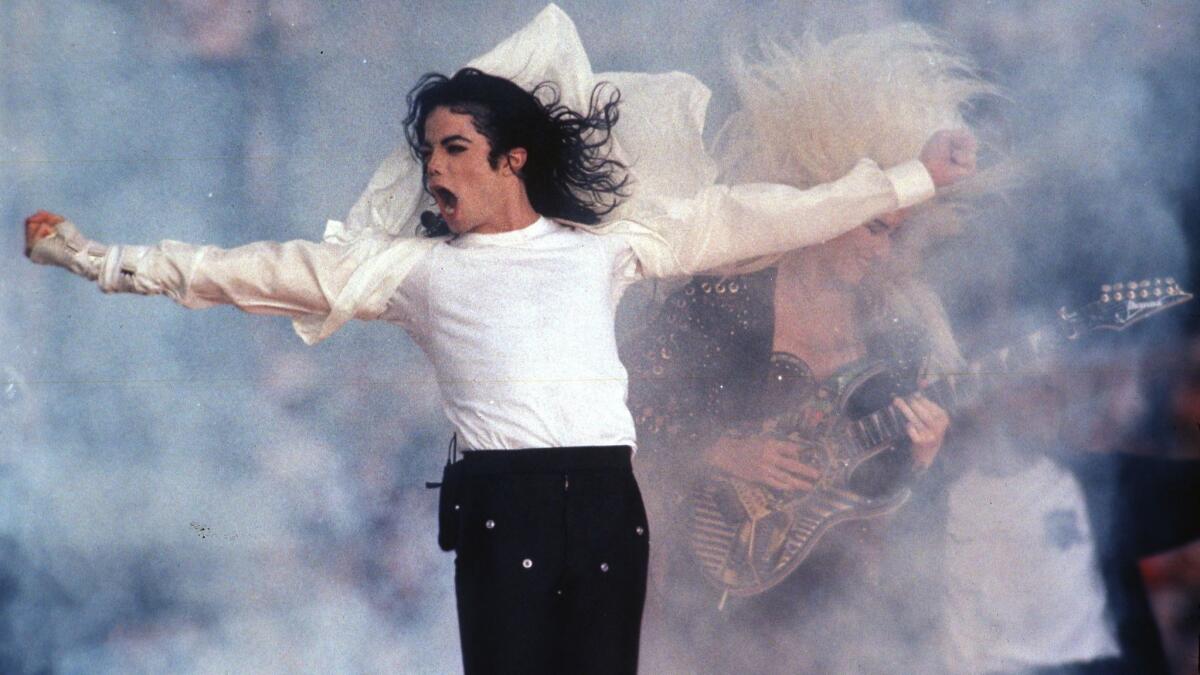
Did you reach out to other young men who spent time with Jackson, like Brett Barnes or Macaulay Culkin? What about the males who also filed suits against him, Jordan Chandler and Gavin Arvizo?
We looked into Brett and Macaulay and tried to find Jordy and Gavin. I wrote to Gavin, because I really thought that perhaps we’d have a chance of getting Gavin in as well. I interviewed prosecutors and detectives and did a lot of research, both to validate what the guys had told me, but also to just steep myself in the story so I had a good perspective on it. But in the end, I realized that the really extraordinary thing was the two families and their stories.
OK, but what would you have done if, say, Macaulay agreed to be interviewed?
I don’t know what you would have done. Of course I would have interviewed them, but I don’t know how I would have structured the film. It would have been an eight-hour epic or something, because then I would had to have interviewed Macaulay’s mom and dad and brother and the whole thing. I think pedophiles often groom a family, they don’t groom a child. [Editor’s note: Culkin has repeatedly denied he experienced anything inappropriate with Jackson.]
Do you think more men will come forward with allegations against Jackson after seeing this?
There must be dozens of men out there who have been sexually abused by him. And I think in the same way that James saw Wade on TV and said “me too,” others will see this film and come out.
Were you tempted to be more judgmental of Robson’s and Safechuck’s mothers, who allowed their sons to sleep in bed with Jackson and didn’t think anything of it?
That’s not how I approach the kind of storytelling I do. I don’t see any need to intervene or to comment. It’s very clear that the way that they parented their sons was lacking, was wanting. They were dazzled, as they say, they were starstruck and having this incredible experience at the expense — now they realize — at the expense of their children. My approach as a storyteller is never to [judge], but always to try and create an understanding of what motivated that person. It’s not about condemnation, it’s about trying to understand why they did it.
In the film, Joy Robson says she doesn’t want to know the details of her son’s alleged sexual abuse because it would give her nightmares. How does she feel now that she’s seen the film?
She saw the film, but she chose not to watch the explicit descriptions of sexual abuse. I fast-forwarded through them. I feel very conflicted about that. Obviously, I was going to respect her wish, and there was no way I was going to force her to watch it or really try and sway her to watch it. I think the reason she doesn’t want to watch it is because it would undermine to some extent the deal she’s struck with herself. “I did this bad, but it wasn’t all bad.” She justifies herself a little bit more than Stephanie [Safechuck] does. Stephanie was so angry that she fantasized about murdering Jackson.
What role do those who worked for Jackson have in all this?
Clearly, the people in the Jackson household would have seen the children coming in and out of the house and the regular movement of young boys and must have asked themselves some questions. He couldn’t have operated without the cooperation of people around him. How much people know or whether they would feel bad when they watch the film, I don’t know. That’s another film that I deliberately haven’t gotten into.
Why do you think abuse allegations have never really stuck to Jackson?
He was very powerful and very wealthy and could hire lawyers who would intimidate. People are scared of Jackson, still. They’re scared of his legal team. They’re very aggressive. I got that feeling from approaching members of the household staff and detectives — you don’t [mess] with Jackson.
Since it was announced “Leaving Neverland” would play here, Jackson fans have been trolling the Sundance page and leaving thousands of comments on Twitter. Why do you think they’re having such a strong reaction to the film?
He has this army of fans who are vocal. It’s a sort of cult, isn’t it? Not as in [David] Koresh or anything like that, because Jackson obviously didn’t physically enslave people. But there’s a level of adoration. Because he projected this image of innocence and a connection with children and a purity, I think there’s something in people that wants to worship that. And if you say that actually the opposite was true — that instead of loving and cherishing children, he harmed them — you’re blasphemous. It feels like we’ve committed blasphemy, and the MJ fans have launched a fatwa against us.
How do you think his fans should react to these allegations? Should they stop listening to his music?
The current reaction is revulsion when people hear his music, knowing now the truth about what he did with children. Whether that will last — I never particularly was fond of Jackson’s music. I acknowledge his genius, and he was amazing and incredibly successful. I personally was never a huge fan because I like different types of music, so I don’t have that visceral feeling of someone playing a Michael Jackson track at my wedding. But he means an incredible amount to a huge number of people because they connect Michael’s music to a time in their life.
We’re coming off Lifetime’s R. Kelly docuseries, and now there’s a campaign to #MuteRKelly. Do you think there should be a #MuteMJ campaign?
I think Jackson’s in a different category from R. Kelly. How many people play R. Kelly at their wedding or birthday? Not that many. But Michael Jackson tracks are embedded in our culture. And if you’re going to rip them out, it’s going to cause a lot of pain. So maybe there’s a way to say — not the way Kanye West suggested — but if you listen to his music and you also acknowledge the fact that he was very damaged and an abuser of children.
I don’t know, Amy, it’s a good question, because personally I wouldn’t enjoy listening to Michael Jackson tracks having watched that film. If there’s a movement to reframe or reassess Michael Jackson’s music and that is associated with, “Let’s wake up about child sexual abuse and let’s believe people when they come out and not say they’re just after money; let’s not shame the victims.”
If #MuteMJ — if that ever happens — is associated with that, then fine, so be it. I think the Jackson story has become such an arena for slugging matches that don’t involve anything constructive at all. The tone of a lot of the debate is just appalling and negative.
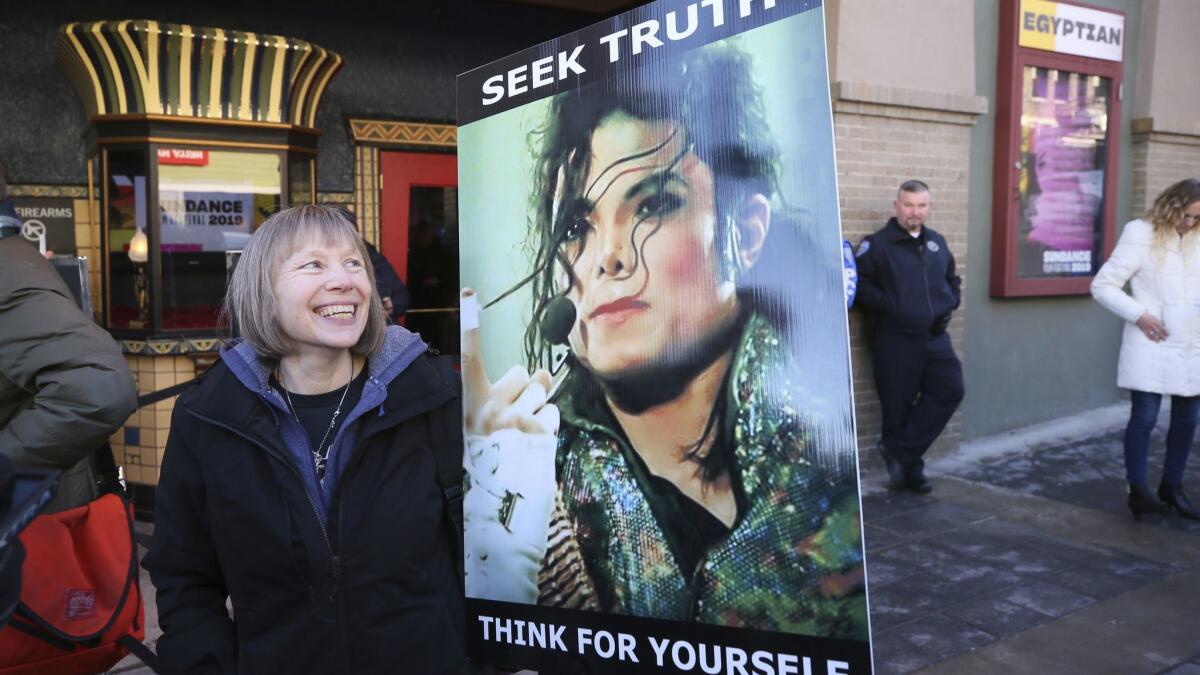
How would you argue we do right by those who say they’ve been abused by Jackson?
I think maybe that’s part of the answer, because it’s a public acknowledgment that you believe Wade and James and what they’re saying. And therefore, the next time you listen to a Michael Jackson track, what you’ve seen in the film comes to mind and that’s your association, which is not a nice association.
I’m not of the view that there should be a #MuteMJ movement. I don’t think that politically in the wider world that’s the answer. I think what we’re trying to achieve here using perhaps the biggest global star that ever lived is to how power and wealth can be misused.
I think it’s a great film for parents to watch, because the next time you look at someone behaving a certain way with your child, you think, “Wait a minute, let me take a closer interest.” What I want the film to do is to make it OK to talk about child sexual abuse. Not necessarily in an organized, institutional way. I don’t think the answer is to start a war about Jackson’s music.
Why make this a four-hour docuseries?
We all thought it would be a two-hour film. I remember when I sent the first rough cut to HBO and it was four hours and 50 minutes. You just don’t do that. It was gonna be two hours. But I was just, like, “Watch it.” The story just kind of slows you down and embeds you in the relationships, and I think you just can’t really get it without that. The story’s so contradictory and confusing. “You said there was no abuse, and now you’re saying abuse.” “You say you lied then, so which one is it?” You have to follow that thread of how this all happened step by step and the psychological beats of the story.
The central thing you have to understand is that these children fell in love with Michael Jackson. Jackson wasn’t a kind of grab-and-grope pedophile — he was a romance, relationship pedophile. Wade started telling me how he had fallen in love with Jackson and how that love lasted for years — decades — and how that love motivated his loyalty to Jackson. And how that loyalty ended up requiring him to lie about what happened.
And also because the sexual abuse happened in the context of a loving relationship, it didn’t seem like abuse. It seemed like love.
Did the #MeToo movement affect the film?
The #MeToo movement emerged as we were making it, and it did play into it. For a long time, Joy [Robson] was reluctant and had doubts about the interview. She basically wouldn’t make a date for the interview. When the #MeToo movement happened, she felt the time had come to go on the record.
I think it’s given this whole narrative in our society a real impetus. This is a case of #MeToo, because when James saw Wade on television, he went, “me too.” I think child abuse stories are the next step for the #MeToo movement.
That doesn’t mean that women’s stories get superseded, because obviously no one wants that. I think this film is going to get people going #MeToo, and a lot of people will come out and will feel they’re able to talk because Wade and James broke the biggest taboo of all — the biggest silence of all. People who have had the same experience but not with a very famous person will feel empowered to speak, and I hope that that can coalesce with the #MeToo movement. I know [#MeToo founder] Tarana Burke was in the audience [at the Sundance screening], and that’s really thrilling. I can’t tell you how happy I am about that.
FULL COVERAGE: 2019 Sundance Film Festival »
Sundance 2019 Film Festival: See the latest video interviews


Video: Behind the scenes of the L.A. Times 2019 Sundance photo/video studio
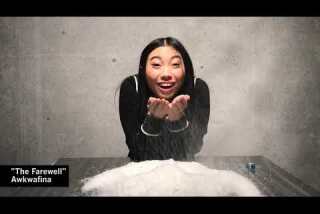
Video: The 2019 Sundance Film Festival Boomerang Supercut
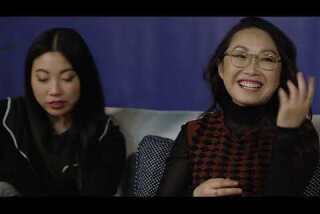
Video: How do you make the most of a small budget?
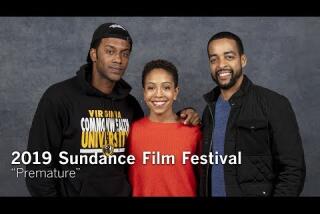
Video: Cast and filmmaker discuss trusting each other while shooting 'Premature'
3:12
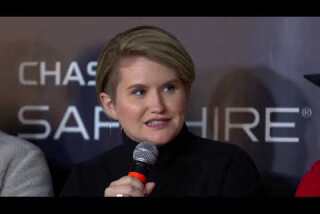
Video: 'Brittany Runs a Marathon' breaks conventions and stereotypes
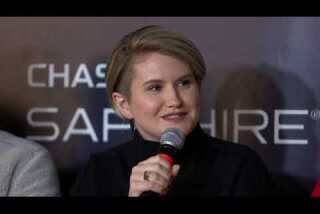
Video: Jillian Bell is tired of getting scripts about body image issues
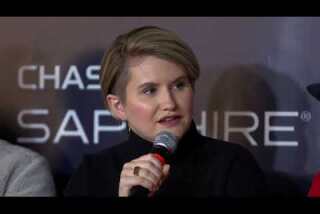
Video: Jillian Bell lost 40 pounds for her role in 'Brittany Runs a Marathon'
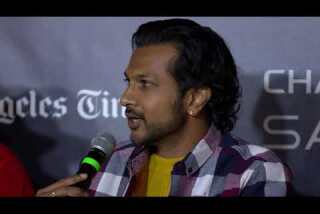
Video: 'Brittany Runs a Marathon' actors break out of their sidekick roles
More to Read
Only good movies
Get the Indie Focus newsletter, Mark Olsen's weekly guide to the world of cinema.
You may occasionally receive promotional content from the Los Angeles Times.











